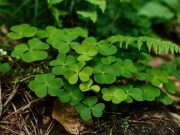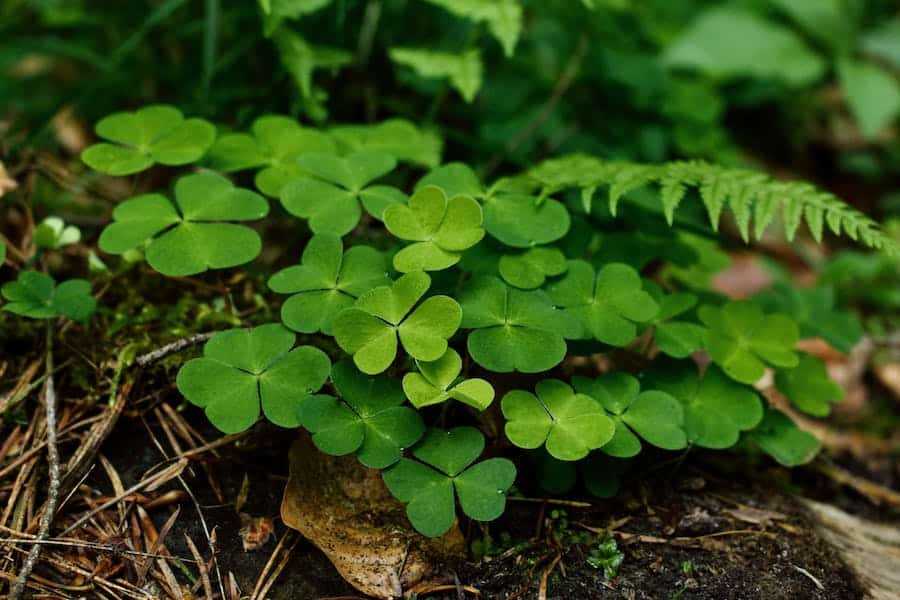When it comes to landscaping and gardening, one of the most common challenges is finding the right plants that will thrive in various environmental conditions. Whether you have a sunny backyard or a shaded area under a dense tree canopy, the choice of plants can make all the difference in the success of your garden. Among the many options available, clover is a popular and versatile choice for gardeners. But does clover grow in shade?
In this blog post, we will explore the fascinating world of clover and its adaptability to different lighting conditions, with a particular focus on its ability to flourish in shaded areas. Clover, with its lush green foliage and delicate flowers, has long been associated with the countryside and is often used to enhance the beauty of lawns, meadows, and gardens. However, its ability to grow in the shade may surprise you.
This article explores the potential of clover, a shade-friendly plant, for enhancing the vibrancy of outdoor spaces, offering practical tips for both experienced and novice gardeners.
Does Clover Grow In Shade?
Clover can grow in partial shade, but it prefers full sun. In areas with some shade, clover may not grow as vigorously. However, it can still establish and thrive to some extent in shaded conditions. Adequate sunlight is generally ideal for optimal clover growth.
The Fascinating World Of Clover
Clover, scientifically known as Trifolium, is a remarkable plant that belongs to the legume family. It is renowned for its trifoliate leaves and small, ball-shaped flower heads, which come in various colors, including white, red, and pink. Clover is celebrated for its many positive attributes, making it a valuable addition to gardens, lawns, and even wildflower meadows.
Clover Varieties
Before delving into the specifics of clover’s shade tolerance, let’s explore some common varieties of clover:
White Clover
White clover is perhaps the most recognizable clover species. It’s a low-growing perennial that spreads quickly and produces clusters of small, white flowers. White clover is often used in lawns and as a cover crop.
Red Clover
Red clover is another popular variety, known for its pink to purple flowers. It’s often used as a forage crop and is valued for its nitrogen-fixing capabilities.
Crimson Clover
Crimson clover is a winter annual with striking crimson-red flowers. It’s commonly used as a cover crop to improve soil health.
Alsike Clover
Alsike clover is a hybrid variety that combines characteristics of both white and red clover. It’s known for its tolerance to wet soils.
Each of these clover varieties has its unique characteristics and applications, but the question remains: can they thrive in shaded areas?
Benefits Of Growing Clover
Growing clover in your garden or lawn can bring about a multitude of benefits. Whether you’re looking to improve soil health, attract pollinators, or control weeds, clover has something to offer. Here are the key benefits of growing clover:
Nitrogen Fixation: One of the most significant advantages of clover is its ability to fix nitrogen in the soil. Clover forms a symbiotic relationship with nitrogen-fixing bacteria in its root nodules. These bacteria convert atmospheric nitrogen into a form that plants can use, enriching the soil with this essential nutrient. As a result, nearby plants benefit from the increased nitrogen availability, reducing the need for synthetic fertilizers.
Weed Suppression: Clover has a dense, low-growing habit that can effectively smother weeds. Its thick mat of foliage shades the soil, making it challenging for weed seeds to germinate and establish. This natural weed-suppressing quality reduces the need for herbicides and manual weed removal, making it an eco-friendly choice for weed control.
Pollinator Attraction: Clover’s colorful and nectar-rich flowers are a magnet for pollinators, particularly bees and butterflies. Planting clover in your garden can help support and nourish these essential pollinators, contributing to the overall health of your ecosystem. A thriving pollinator population can also lead to increased fruit and vegetable yields in nearby plants.
Erosion Control: The extensive root system of clover helps bind soil particles together, making it an effective erosion control plant. It’s an excellent choice for slopes, embankments, and areas prone to soil erosion. By preventing soil erosion, clover helps maintain the integrity of your landscape and protects against the loss of valuable topsoil.
Wildlife Habitat: Clover provides food and habitat for various wildlife species. It’s a food source for herbivores like rabbits and deer, making it a valuable addition to natural areas and wildlife-friendly gardens. By growing clover, you can support local wildlife and create a more biodiverse ecosystem.
Improved Soil Structure: Clover’s extensive root system helps improve soil structure. The roots help break up compacted soil, enhancing its aeration and drainage properties. Improved soil structure allows water to penetrate more effectively, reducing the risk of waterlogging and promoting healthier plant growth.
Drought Tolerance: Clover, particularly white clover, exhibits good drought tolerance once established. Its deep-rooted system allows it to access moisture deeper in the soil, making it a resilient choice for regions with irregular rainfall or water restrictions.
Low Maintenance: Clover is a low-maintenance plant that requires minimal care once established. It doesn’t need frequent mowing, and its nitrogen-fixing abilities reduce the need for additional fertilizers. This makes it a cost-effective and time-saving choice for landscaping.
Versatile Use: Clover can be incorporated into various landscape designs and settings. It can be used as a ground cover in lawns, mixed with grass seed to create a clover-grass blend, or sown as part of a wildflower meadow. Its versatility makes it suitable for a wide range of garden styles and purposes.
Tips For Growing Clover In Shaded Areas
If you’re determined to grow clover in shaded areas, there are some strategies you can employ to increase its chances of success:
- Choose The Right Clover Variety: Some clover varieties are more shade-tolerant than others. White clover and red clover tend to be more adaptable to partial shade compared to crimson or alsike clover.
- Improve Soil Quality: In shaded areas, competition for nutrients and moisture is higher. Amending the soil with organic matter, such as compost, can improve soil quality and provide a better-growing environment for clover.
- Regular Maintenance: Keep the clover well-maintained by mowing it to an appropriate height. This helps reduce competition from other plants and encourages clover growth.
- Supplemental Light: In areas with very limited sunlight, you might consider using artificial lighting to provide additional light to the clover. However, this can be a more involved and costly solution.
- Consider Alternatives: In areas with deep shade, it might be more practical to consider alternative ground cover plants that are better suited to low-light conditions.
Conclusion
In the world of gardening and landscaping, understanding the specific requirements of different plants is essential for successful cultivation. While clover can tolerate partial shade, it thrives best in full sun conditions. If you’re determined to grow clover in shaded areas, choosing the right variety, improving soil quality, and providing proper maintenance are key strategies to enhance its chances of success. Clover, with its nitrogen-fixing abilities, weed-suppressing qualities, and attractiveness to pollinators, offers a range of benefits for your garden or lawn. Whether you choose to incorporate it as a ground cover or a component of a wildflower meadow, clover can be a valuable addition to your outdoor space, even in partially shaded areas. So, go ahead and explore the world of clover, and watch your garden thrive with this versatile and resilient plant.
FAQ’s
Can Clover Grow In Shaded Areas?
Clover can tolerate partial shade, receiving 4 to 6 hours of sunlight daily. However, in deep shade (less than 4 hours of sunlight), its growth may be hampered.
How Do I Incorporate Clover Into My Lawn?
To add clover to your lawn, mix clover seeds with grass seed before planting. Aim for a clover-to-grass ratio that suits your preferences, typically around 5-10% clover.
Is Clover Invasive?
Clover can spread quickly, but it’s not typically considered invasive. Regular mowing and maintenance can help control its growth and prevent it from taking over your lawn or garden.



















